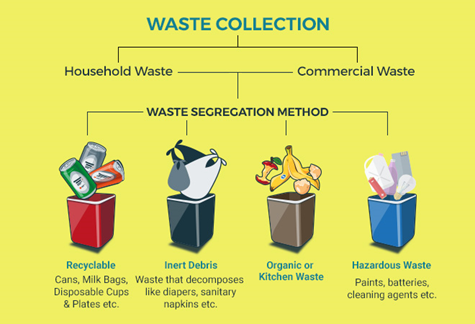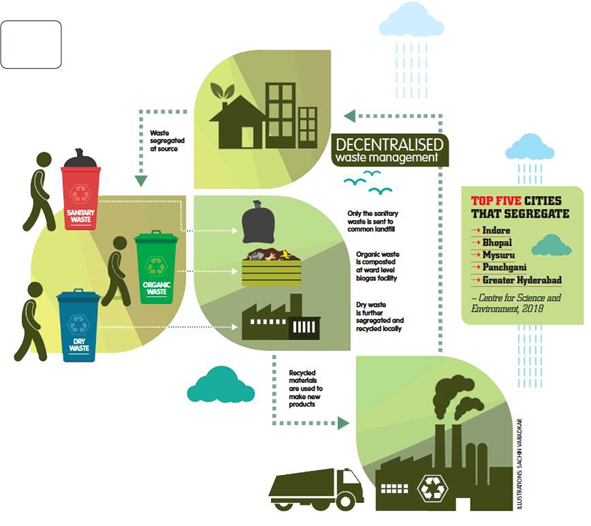


- Solid Waste management is a major problem in India, where urbanization industrialization, and economic growth have resulted in increased municipal solid waste (MSW) generation.
- The burgeoning population and improvement in living standards of people have only compounded the problem in management of waste in urban and rural India.
- The main objective of an efficient SWM system is to maximize resource recovery and energy generation from waste in the processing facility and minimize waste disposal in landfills
Legal Framework proposed for solid waste management in India
- Ministry of Environment, Forests & Climate Change (MoEF&CC) notified MSW (Management and Handling) Rules, 2000 and the revamped Solid Waste Management Rules in 2016 to ensure proper solid waste management in India.
- Solid Waste Management Rules, 2016 delineate the responsibility of the different stakeholders including the MoEF&CC, MoHUA, Central pollution control Board (CPCB), State pollution Control Boards (SPCBs), state Urban Departments, Urban Local bodies, Gram panchayats, as well as waste generators.
- Whereas MoHUA, State Urban Departments and Local Bodies have mainly been entrusted with the responsibility of development of infrastructure related to waste management, MoEF&CC CPCB, SPCB, and Pollution Control Committee (PCC) have been entrusted with the responsibility of monitoring the enforcement of the Rules.
- The responsibility of the waste generator lies essentially in proper segregation of the waste which is the core requirement of effective solid waste management.
Status of Solid waste management
- The overall solid waste generated in the country has been estimated to be 1,52,076 Tons per day (TPD) as per the Annual Report 2018-19 submitted by the SPCBs/PCCs.
- Of this, 5% is collected and only 35% of waste is treated. 33% of waste is landfilled and 46,156 TPD of waste which is one-third of the total waste generated in the country remains unaccounted. The unaccounted waste is littered on streets up in dumpsites.
- Recently, with National. Green Tribunal's intervention, biomining (a method for stabilisation of waste so as to minimise its adverse environmental impact) of these dumpsites, has been initiated in 11 states.

Related Articles


